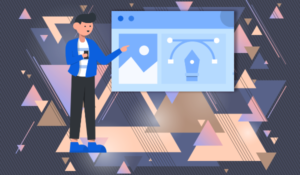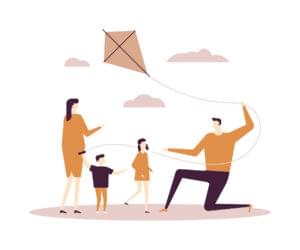 Censorship of the Internet is definitely alive and well in countries where oppressive government regimes seek to control the flow of information, such as China, Uzbekistan, Cuba, and Iran. The Committee to Protect Journalists (CPJ) found that there are 125 journalists behind bars around the world as of the start of this month. That’s actually a drop of 2 from 2007, but given that 45% of imprisoned journalists are bloggers or work exclusively online it is clear that the rise of the Internet as an information source has led to a parallel rise in censorship.
Censorship of the Internet is definitely alive and well in countries where oppressive government regimes seek to control the flow of information, such as China, Uzbekistan, Cuba, and Iran. The Committee to Protect Journalists (CPJ) found that there are 125 journalists behind bars around the world as of the start of this month. That’s actually a drop of 2 from 2007, but given that 45% of imprisoned journalists are bloggers or work exclusively online it is clear that the rise of the Internet as an information source has led to a parallel rise in censorship.
“Online journalism has changed the media landscape and the way we communicate with each other,” said CPJ Executive Director Joel Simon. “But the power and influence of this new generation of online journalists has captured the attention of repressive governments around the world, and they have accelerated their counterattack.”
That’s not overly surprising. What is perhaps surprising, is cases of Internet censorship that have begun to crop up in Western nations.
We recently wrote about Australia’s censorship plans, under which the government would force ISPs to filter “objectionable material” and block access for users. That plan has met with a large deal of public criticism and multiple petitions have been created in an effort to block it.
Also in Australia this week, a Supreme Court judge ruled that cartoon depictions of underage sex were the same as child pornography. The judge determined that anti-child pornography laws were on the books not only there to stop abuse of real children, but to curb the creation and distribution of material, such as cartoons, that could “fuel demand for material that does involve the abuse of children.”
Similarly, in the UK today this week the nonprofit, non-governmental Internet Watch Foundation (IWF) added a Wikipedia page to their blacklist because of an image that depicts an underage girl in the nude. The IWF’s blacklist is used by most British ISPs to maintain decency standards for users. The page in question (potentially NSFW) is for the 1976 Scorpions album “Virgin Killer,” and includes a picture of the album’s cover, which shows a prepubescent in the nude. The IWF determined that the picture was “a potentially illegal indecent image of a child under the age of 18,” and added the page their blacklist.
The IWF eventually backed down and removed the page from their blacklist, though implied that the image might still be blocked if hosted in the UK.
Some might argue that the protection of children is paramount, and if it comes at the expense of a few “perverts” not being able to ogle drawings of little girls, or (subjectivity warning) artistic nude photos, then so be it. These cases aren’t, after all, cases of journalists or bloggers being censored because they’re speaking out against a government, but rather this is censorship of decidedly “icky” content.
However, sometimes standing up against censorship might mean standing up for speech you don’t agree with, or even find downright reprehensible. The slippery slope argument is definitely applicable here.
As Neil Gaiman reminded on his blog last week in a post that is a must-read for anyone concerned with why freedom of speech is an important right to fight for, “If you don’t stand up for the stuff you don’t like, when they come for the stuff you do like, you’ve already lost.”
JR Raphael of PC World writes that the IWF case is particularly disturbing because it illustrates private censorship, even if only lasted a couple of days. Why should a private organization be allowed to assert “its own right, outside of the law, to determine what legally acceptable content you should or should not be allowed to see?”
Further, what these cases have in common is that they present challenges the limits of free speech. Should a drawing really ever be considered illegal? Can a photo of a nude child ever be art? What about the controversial work of famous photographers like Jock Sturges or Sally Mann, are they works of pornography or art? Should Amazon be blacklisted for including cover images of the Scorpions’ album or a Sally Mann book? Should any private organization have a say over what is decent and what you are allowed to see? Should the government?
“These are tough questions, and there may not be any definitively correct answers. I sure don’t have them,” writes Raphael. “But there’s no doubt an important debate brewing here that’s far bigger than this one case — and everyone who uses the Internet has reason to be invested in its outcome.”
 Josh Catone
Josh CatoneBefore joining Jilt, Josh Catone was the Executive Director of Editorial Projects at Mashable, the Lead Writer at ReadWriteWeb, Lead Blogger at SitePoint, and the Community Evangelist at DandyID. On the side, Josh enjoys managing his blog The Fluffington Post.




